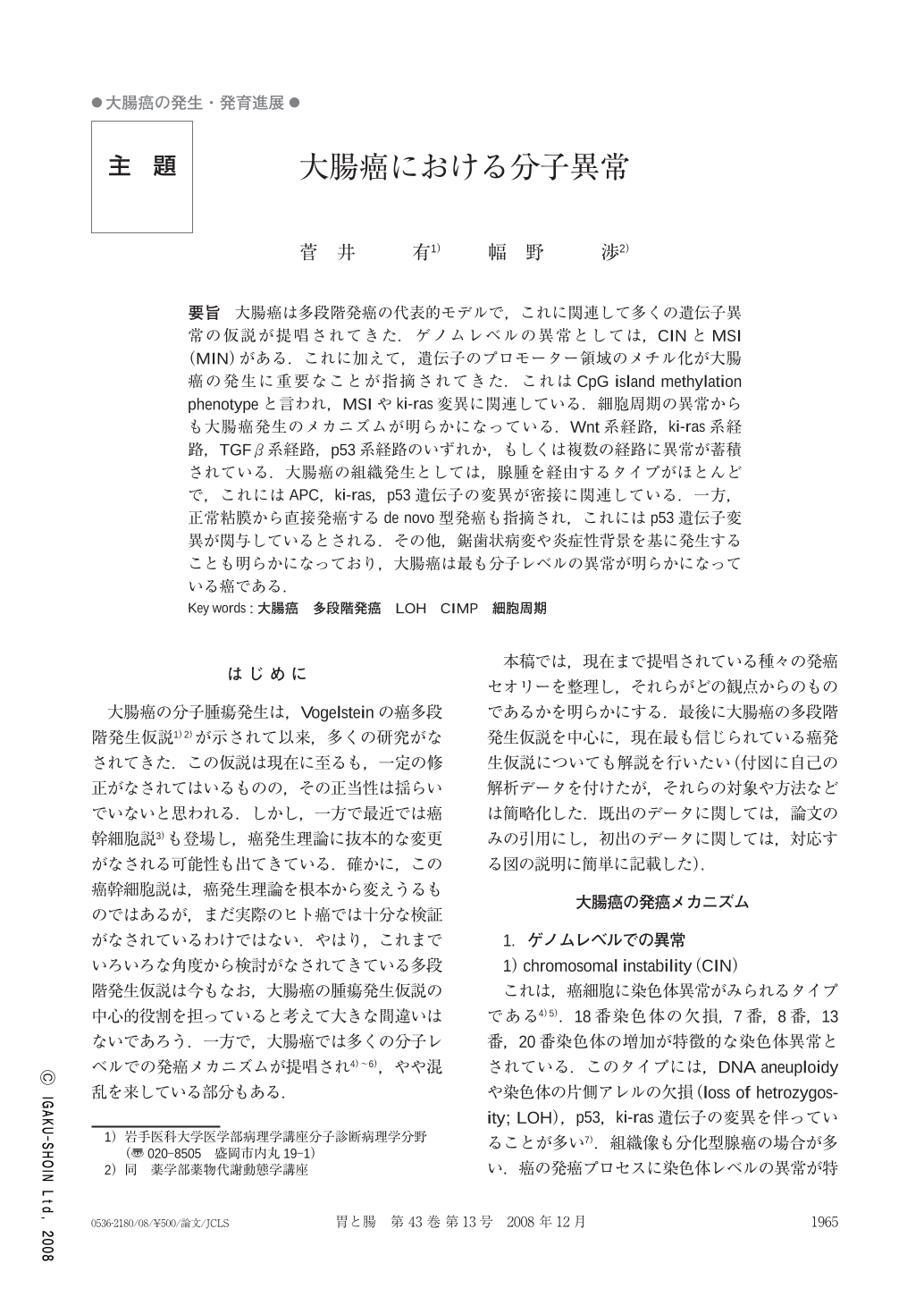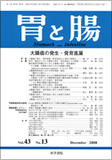Japanese
English
- 有料閲覧
- Abstract 文献概要
- 1ページ目 Look Inside
- 参考文献 Reference
- サイト内被引用 Cited by
要旨 大腸癌は多段階発癌の代表的モデルで,これに関連して多くの遺伝子異常の仮説が提唱されてきた.ゲノムレベルの異常としては,CINとMSI(MIN)がある.これに加えて,遺伝子のプロモーター領域のメチル化が大腸癌の発生に重要なことが指摘されてきた.これはCpG island methylation phenotypeと言われ,MSIやki-ras変異に関連している.細胞周期の異常からも大腸癌発生のメカニズムが明らかになっている.Wnt系経路,ki-ras系経路,TGFβ系経路,p53系経路のいずれか,もしくは複数の経路に異常が蓄積されている.大腸癌の組織発生としては,腺腫を経由するタイプがほとんどで,これにはAPC,ki-ras,p53遺伝子の変異が密接に関連している.一方,正常粘膜から直接発癌するde novo型発癌も指摘され,これにはp53遺伝子変異が関与しているとされる.その他,鋸歯状病変や炎症性背景を基に発生することも明らかになっており,大腸癌は最も分子レベルの異常が明らかになっている癌である.
Colorectal cancer(CRC)is one of the most frequent cancers in the Western world. CRC development is a multi-step process that is associated with multiple molecular alterations. Recent studies have shown that three main pathways occur in CRC, including chromosomal instability(CIN), microsatellite instability(MSI)and epigenetic silencing through the CpG Island Methylator Phenotype(CIMP). These pathways have distinct clinical, pathological, and genetic characteristics, which can be used for molecular classification, prognosis and treatment in CRC. This review aims to give an overview of the evolving molecular concepts in CRC, with concern for their potential for clinical implications for the gastrointestinal clinicians.

Copyright © 2008, Igaku-Shoin Ltd. All rights reserved.


